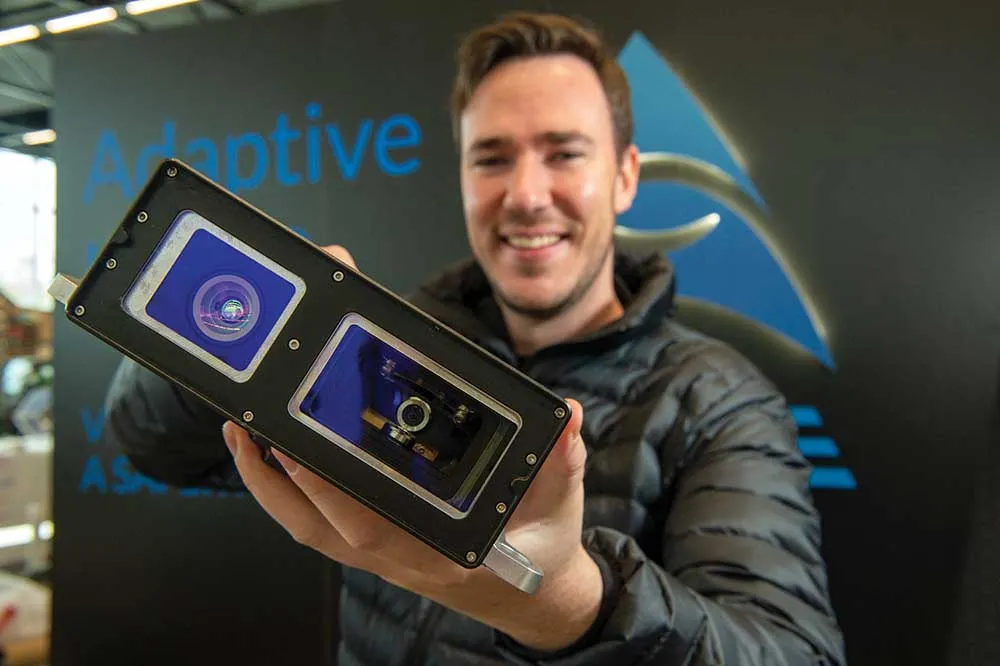
Canadian LiDAR specialist
The company has two LeddarCore IC programs in progress: the LC-A2, targeting automation levels 1 to 3 and the LC-A3, which will meet the specifications for automation levels 2 to 4.
LeddarCore IC is said to provide high-density 3D point cloud LiDAR for higher levels of autonomous driving, support for both flash and beam steering LiDAR and enable affordable ADAS and autonomous functions as LiDAR replaces or complements camera and/or radar.
With ranges reaching 250m and a field of view up to 140°, the LeddarCore ICs will enable the design of affordable LiDARs for all levels of autonomous driving, including the capability to map the environment over 360° around the vehicle.
The company has also been working with Valeo on the Tier-1 supplier’s new solid-state LiDAR for ADAS applications, such as autonomous emergency braking (AEB), traffic jam assist and right turn assist. The sensor will detect pedestrians, bicycles, motorcycles and cars up to 100m away and according to the companies, the new LiDAR will have no mechanical moving parts and will be the least expensive LiDAR sensor on the market.








